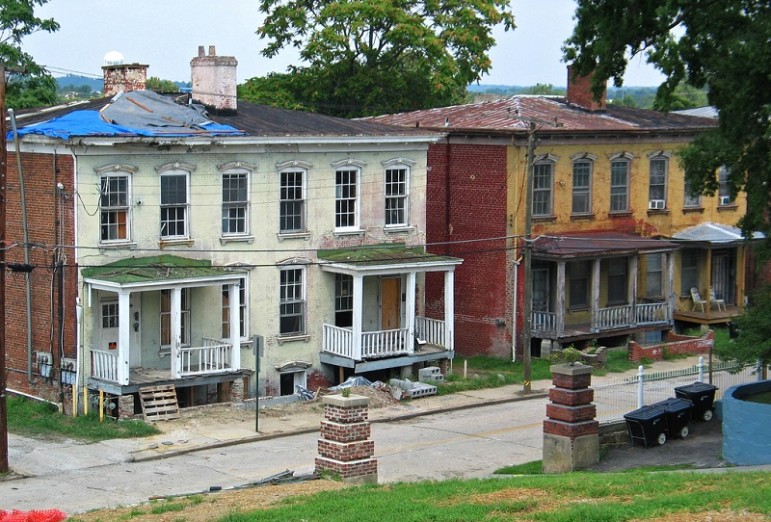
January 26, 2016; Fresno Bee
Across the country, older cities are fighting blight in the neighborhoods ravaged by the wave of foreclosures that swept through communities in the wake of the bursting housing bubble. The bubble pushed out resident homeowners and left behind houses that became the targets of squatters, vandals, and speculators. The Fresno Bee story “Fresno’s biggest property manager fighting blight, replacing boarded-up windows with plexiglass” illustrates the challenges of protecting neighbors from blight and encouraging landlords to make affordable housing available to tenants with the lowest incomes.
The story focuses on Bryce Hovannisian of JD Home Rental and his efforts to comply with a new set of standards for property maintenance. At issue for Mr. Hovannisian is the cost of preparing a unit for occupancy before it is rented. While “prep for occupancy” is standard practice for large developments, individual rental entrepreneurs who are buying into a depressed housing market in hopes of making a substantial profit often shave some corners.
In an effort to comply with Fresno’s new code, the Bee reports, “Hovannisian said his company is taking down boards on vacant homes and replacing them with plexiglass, one requirement of the blight ordinance. Hovannisian would not say how many boarded homes he is responsible for in the city but said, ‘I have it all,’ referring to the supply of plexiglass in Fresno.”
Sign up for our free newsletters
Subscribe to NPQ's newsletters to have our top stories delivered directly to your inbox.
By signing up, you agree to our privacy policy and terms of use, and to receive messages from NPQ and our partners.
Mr. Hovannisian describes his business plan on the JD Homes website:
JD Home Rentals buys homes in any condition for cash. We do not resell the property so you or your renter can stay as a tenant. We will value and close your property in as little as 10 days, no gimmicks, and no run around. Fill out the form below for an evaluation.
His operation seems a cut above the “flippers” and “strippers” who hang signs on telephone poles. Still, his business is well known around Fresno for being the target of local neighborhood activists.
Even in cities where code enforcement has been a priority, finding funds to support the work of finding absentee owners, dragging them into court, and then holding them accountable is a constant problem. The latest HUD appropriations signal more reductions in Community Development Block Grant (CDBG) funding that cities customarily use for code enforcement work. HUD figures show that FY 2015 funding is just slightly above 2012 levels and a cut from the levels in 2013 and 2014. FY 2016 funding level is the same as FY 2015. One of the dangers of “block granting” as a public policy has been that recipient cities see the funding level as the “cap” on their programs…regardless of the need.
Code enforcement is much more expensive than demolition—the other favorite strategy of the post Great Recession era, but the persistence of overgrown lots is not much better than boarded-up abandoned properties. Here’s the other reason code enforcement makes sense for cities. The demand for “affordable” housing continues unabated, but few developers are stepping up to replace demolished housing with new affordable units. Still, some would argue that having no neighbors is better than living next to the folks willing to live in broken-down hulks. This week’s Marketplace captured the frustration of Dayton residents: “Neighborhoods Over Politics wants the city to work with residents to create a demolition plan for each neighborhood—and then, a redevelopment plan. The city does some targeted demolitions now, but says it just doesn’t have the money or the staffing to keep up with every neighborhood’s needs.”—Spencer Wells











